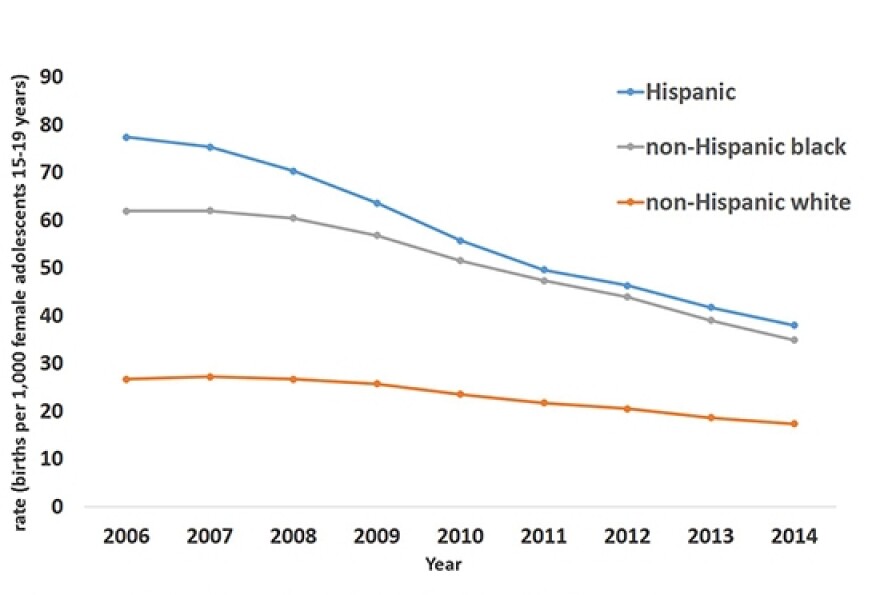
Teen pregnancy rates in the U.S. have reached historic lows, according to the latest data from the Centers for Disease Control and Prevention, declining more than 40 percent from 2006 to 2014.
That’s also true in Connecticut. In 2000, the CDC found that for every 1,000 Connecticut teens between the ages of 15 and 19 there were 31 pregnancies. By 2014, the number of births had dropped to 12.
Still, the U.S. teen pregnancy rate is high compared with other western industrialized nations, and racial and ethnic disparities persist.
School districts face complex challenges educating pregnant and parenting students. The latest data shows that nationwide, only about half of teen mothers receive a high school diploma by the time they’re 22 years old, compared with about 90 percent of women who do not give birth during high school.
Debate continues over whether teen parents are best served in special, small, dedicated school settings, or in their regular comprehensive high schools.
Superintendent Garth Harries just announced that New Haven is shifting its model, and will no longer operate a special site-based program called the Polly T. McCabe Center for parenting students. He said the city will instead provide supportive programs within traditional public schools.
"Frankly, we are really following what we think is what many of the girls, in particular, are telling us with their feet -- which is, they’re making decisions to stay in their regular high school," said Harries.
Harries said the goal of the Polly T. McCabe Center had been to serve and support parenting teens and then reintegrate them back to their regular schools.

"That was the theory," said Harries. "The reality was all too often that the girls’ attendance was erratic and although with the best of intentions, the academic program tried to keep them up with what was happening back in their regular schools. When they got to the point of reintegration, they were behind and now of course they have a young baby and that is further complicating and so all too often they were not successful in that reintegration."
Before the 1970s, pregnant students used to be expelled from public schools. In 1971, the U.S. Supreme Court ruled that was illegal and a few years later Title IX took effect, protecting pregnant and parenting teens from discrimination at school.
The non-profit Student Parenting and Family Services in New Haven reports that in 2015, 100 percent the teenage parents served at the child care center it operates at Wilbur Cross High School – that’s 39 out of 39 teenage parents - graduated from or continued in high school.


